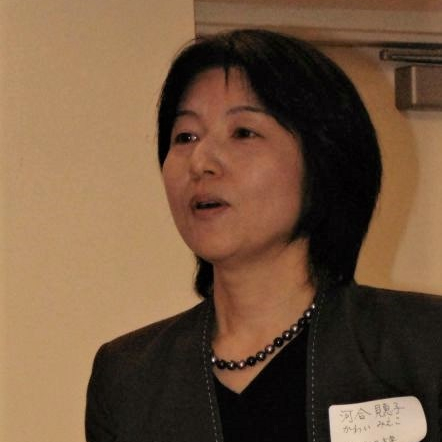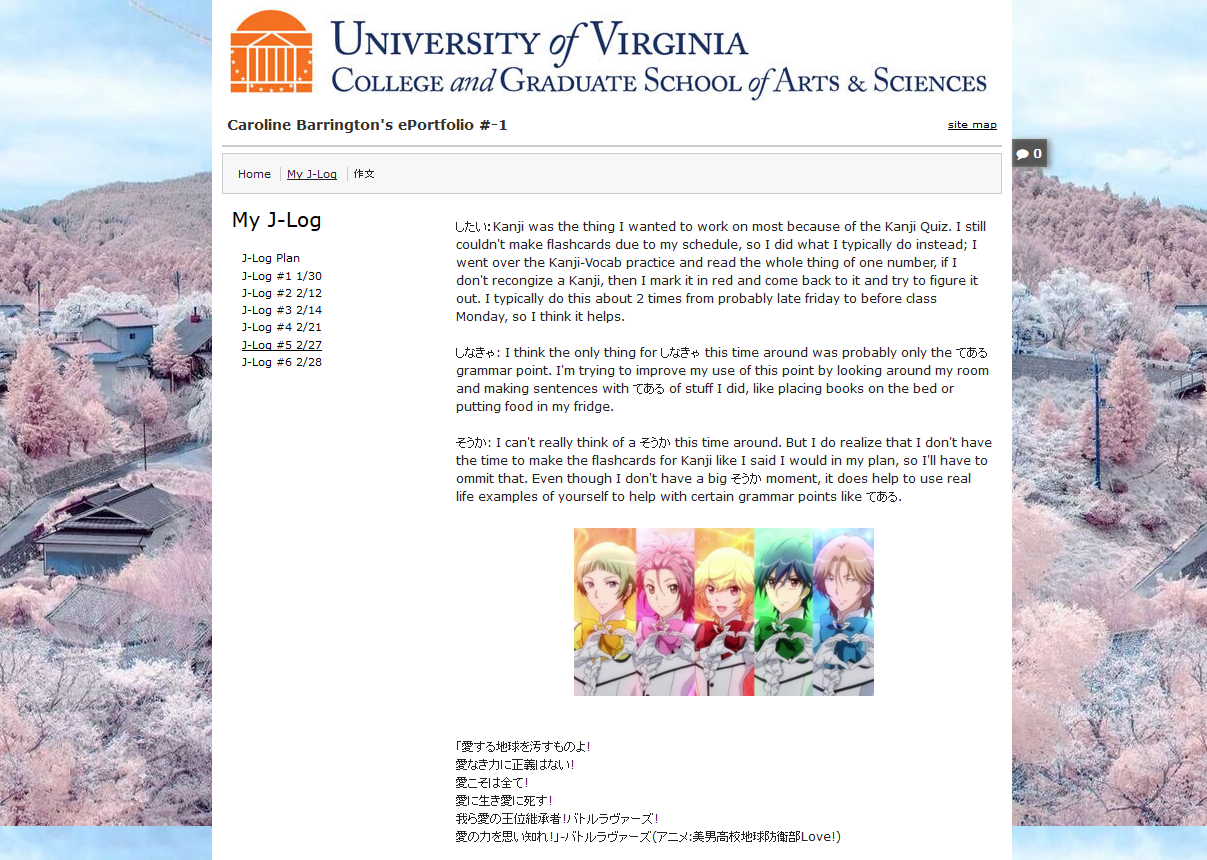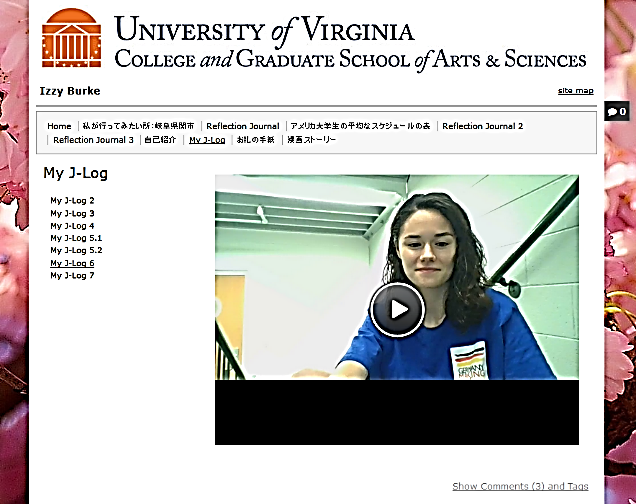Reflection, self-awareness, and effective use of learning strategies are all recognized as important behaviors of successful language learners. Students in Mieko Kawai’s Japanese 2020 classes are developing these skills through their ePortfolio “J-Log” (Japanese Log).

In the J-Log, Japanese language students regularly react to three prompts: Shinakucha = (things I ‘have to do’), Shitai (things I ‘want to do’), and Souka! (‘Aha! moments’). These prompts encourage students to plan, document, and reflect on their learning process. As they increase their awareness of grammar, Japanese culture, and Kanji characters, learners are also developing metacognitive awareness, which helps them to self-regulate and stay motivated to make progress.
The idea for the J-Log came from Kawai’s Japanese colleague Tomoko Marshall, who introduced the log in spring 2017 in Japanese 2020 courses. Marshall notes that her goal in implementing the J-Log was to introduce an element of choice into the language learning experience, in order to encourage students to take responsibility for their own learning.
Mieko Kawai, who has incorporated the J-Log into an ePortfolio in her current 2020 courses, states:
The goal of the J-Log is to help students become more aware, self-directed, intentional learners. Students articulate, in writing, their short-term and long-term goals in learning Japanese, connecting their own lives to the course work. In the next step, they design their own small learning activities, and then self-assess after doing that self-planned activity.

The J-Log in the ePortfolio helps my students develop metacognitive skills that help them realize who they are and how they learn, and how they can apply their learning in non-language contexts or other disciplines. Keeping their log, and reflecting, help them see patterns — when and how their learning comes to be successful (or unsuccessful) and meaningful, with visible evidence of growth.
Student feedback indicates the importance of the J-Log to their learning and motivation. Izzy Burke, a 2nd year studying Japanese Language & Literature and the Batten School’s B.A. in Leadership and Public Policy, says “language study requires a great deal of individual effort and creativity if you want to make progress, but sometimes it can be a challenge to stay motivated when you also have academic commitments and extracurriculars. The J-Log has given me a chance to pause my routine and reflect on my progress, mistakes, and future goals in learning Japanese.”
Students also reported finding value in the creative possibilities afforded by the ePortfolio, which is hosted by Digication. Caroline Barrington, a third Year English major and Japanese learner, notes, “The J-log has helped me think of some ‘out-of-the-box’ ideas for remembering certain aspects of Japanese; like how singing in Japanese helps me with pronunciation and speed of speech.” Izzy Burke notes “the format of the E-portfolios also gives me a chance to personalize my J-log. Recently I’ve been experimenting with a “vlog” style format, and have enjoyed it so much that I plan on keeping a video-journal to track my progress when I study abroad in Hakodate, Hokkaido this summer!”

Kawai notes a final benefit of the eportfolio J-Log: that students share ePortfolios with one another, making them a powerful tool for collaborative learning:
By commenting on each other’s posts, students have opportunities to read what others are doing, and organically learn from peers. Those students who may not traditionally see themselves as successful language learners tend to bring great contributions to the learning community, by analyzing and synthesizing their learning, and giving supporting comments to others.
The opportunities for reflection, creativity, and collaboration, afforded by ePortfolios, help to create a community of self-aware learners who can drive, plan, and evaluate their learning. The role of ePortfolios in helping to organize, collect, reflect on, and assess learning activities was recently recognized as a “high impact practice” by the Association of American Colleges and Universities (AAC&U). Beyond the language learning context, ePortfolios are in use across the UVA College of Arts & Sciences, from Chemistry to Spanish. At the end of each semester, a FolioFest showcase event is held to celebrate excellence in ePortfolio learning in the College.
